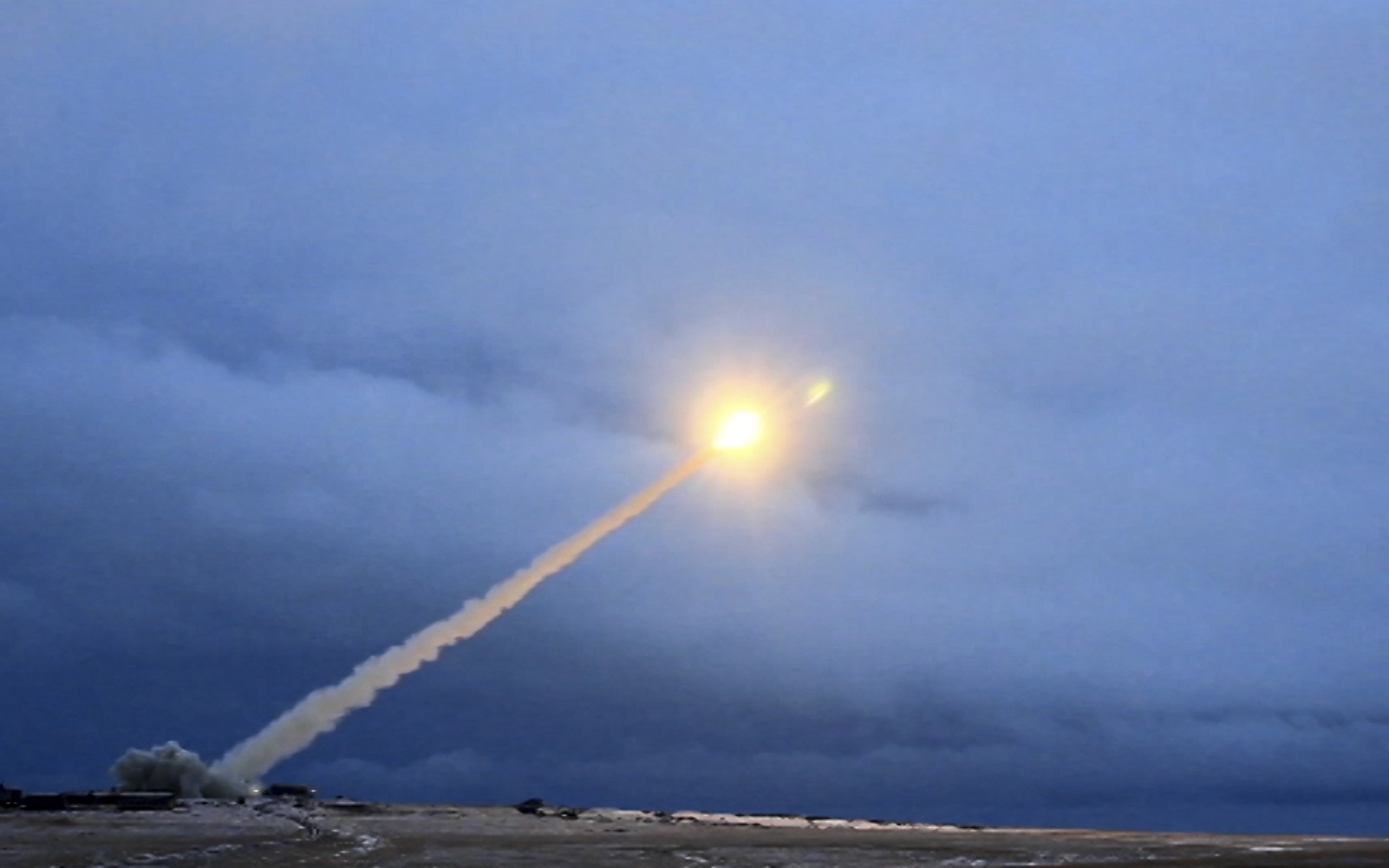- Russia is gearing up to search for a missing nuclear-powered cruise missile that was lost at sea during a failed test-fire last year.
- Russian President Vladimir Putin has boasted about the weapon’s advanced capabilities, but all tests have reportedly ended in failure.
- While the missile is supposed to be able to fly indefinitely, its nuclear-powered core has yet to initiate to allow it to do that.
Russia lost a nuclear-powered missile during a failed test last year, and now Moscow is gearing up to go find it, according to CNBC, citing people familiar with a relevant US intelligence report.
Proudly claiming that the world will “listen to us now,” Russian President Vladimir Putin boasted in early March that his country had developed a new nuclear-powered cruise missile with unlimited range, but each of the four tests between November 2017 and February reportedly ended in failure, according to reports from May.
“The low-flying, stealth cruise missile with a nuclear warhead with a practically unlimited range, unpredictable flight path and the ability to bypass interception lines is invulnerable to all existing and future missile defense and air defense systems,” Putin claimed.
“No one in the world has anything like it,” he added.
The reports from testing don't support the Russian president's claims.
The longest recorded flight, according to US assessments, lasted only a little over two minutes. Flying just 22 miles, the missile spun out of control and crashed. In each case, the nuclear-powered core of the experimental cruise missile failed, preventing the weapon from achieving the indefinite flight and unlimited range the Russian president bragged about.
The tests were apparently conducted at the request of senior Kremlin officials despite the protests of Russian engineers who argued that the platform was not ready for testing. Russian media reports claim the weapon will be ready to deploy in ten years.
During one weapons test in November of last year, the missile crashed into the Barents Sea. Three ships, one with the ability to handle radioactive material, will take part in the search operations, which have yet to be officially scheduled.
Experts are concerned about the possibility that the missile may be leaking radioactive nuclear material. The missile is suspected to rely on gasoline for takeoff but switch to nuclear power once in flight.

